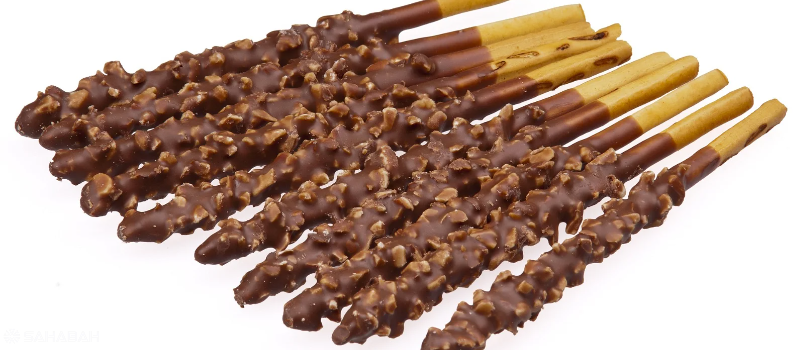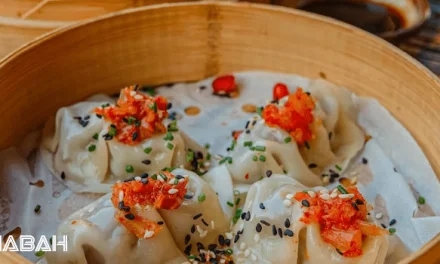If you’re a fan of chocolatey, crunchy treats, chances are you’ve heard of Pepero – the iconic baked snack that’s hugely popular in Korea and gaining a devoted following worldwide. As Pepero’s reach expands globally, one question frequently arises: Is Pepero halal?
For Muslim consumers or anyone adhering to halal dietary guidelines, it’s crucial to know whether a food product meets the requirements of Islamic law. This comprehensive guide dives deep into the halal status of Pepero, exploring its ingredients, certifications, and options for those with specific dietary needs.
Understanding Halal Food
Before we tackle the specifics of Pepero, let’s define what “halal” means in the context of food. According to Islamic law, halal food refers to anything permissible for consumption by Muslims. For a product to be considered halal, it must:
- Not contain any ingredients derived from prohibited animals, such as pork or carnivorous animals.
- Be free from any alcohol or other intoxicating substances.
- Follow specific slaughtering methods for meat products.
- Avoid any contamination with non-halal elements during preparation, processing, and handling.
Major halal certification bodies like the Islamic Food and Nutrition Council of America (IFANCA) and the Islamic Da’wah Council (KoRIS) have established standards to ensure foods meet these criteria.
The Ingredients in Pepero
To determine if Pepero is halal, we need to examine its ingredients closely. The original Pepero flavor consists of:
- Flour
- Sugar
- Vegetable oil
- Cocoa powder
- Milk powder
- Butter
- Salt
- Raising agents (baking soda, etc.)
At first glance, none of these core ingredients raise any red flags for Muslim consumers. However, it’s essential to note that different Pepero varieties may contain additional components like almonds, strawberry flavoring, or cream fillings, which could potentially be non-halal.
Another factor to consider is the potential for cross-contamination during the manufacturing process, especially if non-halal ingredients are used in Lotte’s other product lines.
| Pepero Variety | Key Ingredients |
|---|---|
| Original | Flour, sugar, vegetable oil, cocoa powder, milk powder, butter, salt |
| Almond | Original ingredients + almonds |
| Strawberry | Original ingredients + strawberry flavoring |
| White Cookie | Flour, sugar, vegetable oil, milk powder, butter, salt |
While the base ingredients seem halal-friendly, it’s crucial to verify if Lotte, the company behind Pepero, has obtained official halal certification for specific products or production lines.
Is Pepero Certified Halal?
Unfortunately, there is no clear-cut answer as to whether Pepero as a whole is certified halal. From the available information, it seems that Lotte has not obtained widespread halal certification for their Pepero products, at least not from major international bodies like IFANCA or KoRIS.
However, it’s worth noting that Lotte may have sought halal certification in specific markets or regions where there is a significant Muslim population. For instance, some sources suggest that certain Pepero varieties sold in Malaysia have received halal certification from local authorities.
“In Malaysia, Lotte has obtained halal certification from JAKIM (Department of Islamic Development Malaysia) for several of their Pepero products, including the Original and Almond flavors.”
If you’re based in a region with a large Muslim community, it’s advisable to check local stores and official Lotte channels for any halal-certified Pepero options available in your area.
Vegetarian and Vegan Pepero Varieties
While the halal status of Pepero may be somewhat ambiguous, some varieties are clearly suitable for vegetarians and vegans. The most notable vegetarian/vegan-friendly Pepero options include:
- White Cookie Pepero: Made without any animal-derived ingredients like milk or butter.
- Green Tea Pepero: Featuring a green tea-flavored coating over the biscuit stick.
It’s essential to read ingredient labels carefully, as manufacturing processes could potentially lead to cross-contamination with non-vegan elements. Additionally, certain flavors like the Almond Pepero would not be considered vegan due to the inclusion of milk-based ingredients.
For those adhering to a strict plant-based diet, homemade Pepero recipes using vegan-friendly ingredients might be an appealing alternative.
Where to Buy Halal/Vegetarian Pepero
If you’re on the hunt for halal-certified or vegetarian Pepero varieties, your best options may include:
- Specialty grocery stores: Check the international or Korean food aisles of local halal/ethnic grocery stores.
- Online retailers: Various online marketplaces like Amazon and eBay offer international snack selections, including potential halal-certified Pepero.
- Direct imports: For those with access, you could consider importing directly from regions like Malaysia where halal Pepero is more readily available.
When purchasing online, be sure to read product descriptions carefully and verify the halal/vegetarian status before making a purchase.
Frequently Asked Questions : Is Pepero Halal
Lotte Pepero products are not halal-certified. It is important for consumers to check the ingredients list and verify if it meets their halal requirements.
Where does Lotte produce Pepero?
Lotte, the company behind Pepero, is a South Korean multinational conglomerate. Pepero snacks are manufactured in South Korea.
What are the main ingredients in Pepero?
The main ingredients in Pepero include chocolate, butter, milk, and crunchy biscuit sticks.
Is the original Pepero stick the most popular flavor?
Yes, the original Pepero stick is one of the most popular flavors among consumers.
Can I find Pepero products in the US?
Yes, Pepero products are available for purchase in the US.
What makes Pepero a delicious snack?
Pepero sticks are known for their crispy texture, rich chocolate coating, and variety of flavors that cater to different taste buds.
Is Lotte a well-known company for producing snacks?
Lotte is a popular company known for its production of various snacks and confectionery products.
Is the packaging for Pepero halal?
While the ingredients themselves may not raise any concerns, it’s important to note that the packaging materials used for Pepero have not been explicitly certified as halal. However, most mainstream food packaging is unlikely to contain any non-halal substances.
Are all Pepero flavors halal?
No, not all Pepero flavors can be considered halal due to potential non-halal ingredients like dairy products or flavorings. The original and white cookie varieties are more likely to be halal-friendly, but it’s best to check labels and certifications.
What about Pepero products aimed at kids or novelty shapes?
Novelty Pepero products like character-shaped biscuits or those marketed towards children may include additional ingredients or coatings that could potentially render them non-halal. Exercise caution and check ingredient lists carefully.
Is Pepero suitable for vegetarians/vegans?
While some Pepero varieties like the White Cookie and Green Tea flavors are vegan-friendly, others contain dairy-based ingredients and would not be considered suitable for strict vegans. Always read labels to confirm.
Pepero Alternatives for Halal/Dietary Needs
If you’re unable to find halal-certified Pepero in your area or prefer to avoid any potential non-halal concerns, don’t worry – there are plenty of delicious alternatives to satisfy your cravings for chocolatey baked snacks:
- Halal-certified chocolate-coated biscuit sticks: Several brands like Hao Hao and Monde offer similar products explicitly certified as halal.
- Homemade Pepero recipes: With a little creativity in the kitchen, you can make your own halal-friendly, customized Pepero-style treats using halal ingredients.
- Other halal snacks: Explore the wide range of halal-certified cookies, cakes, and confectionery items available in your local halal grocery stores or online.
Remember, when in doubt, it’s always best to consult trusted halal certification bodies or religious authorities for guidance on meeting your dietary requirements.
Conclusion
In the world of beloved snacks, Pepero holds a special place – but navigating its halal status can be a bit of a challenge. While the core ingredients seem halal-friendly, the lack of widespread halal certification from Lotte, the maker of Pepero, leaves some uncertainty.
However, by carefully reading labels, checking for regional halal certifications, and exploring vegetarian/vegan options or suitable alternatives, Muslim consumers and those adhering to halal guidelines can still indulge in the chocolatey goodness of Pepero or similar treats.
Ultimately, it’s a matter of personal choice and comfort level. If you’re unsure about a particular Pepero product’s halal status, it’s better to err on the side of caution or seek guidance from reliable sources within your community.
The world of snacks is vast, and with a little research and creativity, there’s bound to be a halal-friendly option that satisfies your cravings while aligning with your dietary beliefs.





